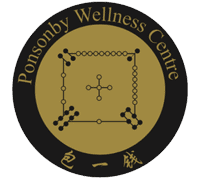Acupuncture and Inflammation: How Needles Reduce the Body’s Fire
Understanding Inflammation
Inflammation is the body’s natural response to an infection or injury, a crucial part of the immune system’s defence mechanism. Upon an injury, when tissues are damaged, the damaged site opens up a chance for microbes to enter the body. The immune system recognises this foreign invader as ‘non-self’ and responds by increasing blood flow, swelling, heat, and, often, pain in the affected area. These are features of acute inflammation, but this response helps isolate and eliminate harmful substances and start healing.
However, sometimes inflammation can become overwhelming and problematic when it persists beyond its purpose (chronic inflammation), leading to chronic conditions. This chronic inflammation can damage tissues and cells, contributing to various diseases.

Diseases Involving Inflammation
- Autoimmune diseases: This is when your immune system begins to attack your healthy cells, as it can no longer detect the differences between your cells and foreign cells. Autoimmune diseases include rheumatoid arthritis, lupus, and inflammatory bowel diseases (like Crohn’s and ulcerative colitis), which involve chronic inflammation as the immune system mistakenly attacks the body’s cells.
- Cardiovascular diseases: Inflammation is now recognised as a major contributor to atherosclerosis, where inflamed arteries contribute to heart disease and stroke risk.
- Neurological disorders: Alzheimer’s disease and other neurodegenerative conditions involve inflammatory processes that damage neurons.
- Asthma: This respiratory condition is marked by airway inflammation, leading to swelling and difficulty breathing.
- Type 2 diabetes: Chronic low-grade inflammation is associated with insulin resistance, a hallmark of Type 2 diabetes.
Other symptoms caused by inflammation can be referred to in the image below:

Current Treatments for Inflammation
Modern medicine employs several treatment options to manage inflammation, particularly chronic inflammatory diseases. Some commonly used methods include:
- Nonsteroidal Anti-Inflammatory Drugs (NSAIDs): Drugs like ibuprofen and aspirin reduce inflammation by blocking enzymes involved in the inflammatory pathway. While effective, they come with side effects, especially when used long-term.
- Corticosteroids: These powerful anti-inflammatory drugs, like prednisone, are often used for autoimmune conditions but can have serious side effects such as increased infection risk and osteoporosis with prolonged use.
- Immune-suppressing drugs: works by inhibiting/decreasing the immune response in the body. However, side effects involve risks of infection, cancer and fertility issues.
- Pain relief: mainly used to control inflammation-induced pain.
- Biologic therapies: These drugs target specific molecules in the inflammatory pathway and are commonly used for autoimmune diseases. They can be effective but are costly and may suppress the immune system.
- Lifestyle interventions: Anti-inflammatory diets, exercise, and stress reduction are increasingly recognised for managing chronic inflammation naturally. Some examples of lifestyle intervention via changing dietary habits are shown below.

How Acupuncture Reduces Inflammation
Acupuncture, a centuries-old practice rooted in Traditional Chinese Medicine (TCM), is gaining recognition in modern science for its potential to reduce inflammation. Studies have found that acupuncture can induce anti-inflammatory effects in multiple systems.
- Immune system: Acupuncture was found to regulate the balance of cells involved in inflammation (macrophage, T cells, monocytes, pro-inflammatory factors) to reduce systemic inflammatory response.
- Respiratory system: Multiple acupoints (BL13, ST36, LI14, BV14, GB30 and more) are commonly used. These acupoints were found to reduce cell accumulation and downgrade the proinflammatory cells to balance inflammation. It can also inhibit immune cells in the respiratory system to prevent further inflammation by downregulating the pro-inflammatory factors, exerting a therapeutic potential in both acute and chronic inflammation.
- Nervous system: acupuncture was found to transform M1 microglial into M2 microglial to inhibit pro-inflammatory related pathways and factors. This offers neuroprotection and inhibit oxidative stress, to prevent inflammation in the nervous system.
- Digestive system: ST36 and SP6 are the most commonly used acupoints for inflammatory disease of the digestive system. The stimulation was found to modulate oxidative stress, regulate gastrointestinal macrophage polarisation and reduce mast cell degranulation to reduce inflammation reaction in the digestive system.

Scientific Studies on Acupuncture and Inflammation
Recent studies support the role of acupuncture in reducing inflammation across different conditions:
- Rheumatoid Arthritis: Studies have shown that acupuncture may reduce symptoms in rheumatoid arthritis patients by reducing pro-inflammatory markers like TNF-α and IL-6.
- Asthma: In some cases, acupuncture has been found to improve lung function and reduce inflammation in asthma patients, potentially by modulating immune responses.
- Irritable Bowel Syndrome (IBS): Acupuncture may reduce abdominal pain and inflammation associated with IBS by improving blood flow and regulating gut motility.
Integrating Acupuncture with Chinese Herbal Medicine
Integrating acupuncture with Chinese herbal medicine creates a powerful synergy that enhances the body’s ability to manage inflammation. Traditional Chinese Medicine (TCM) views health as a balance between opposing forces and emphasizes the interconnection between mind and body, with acupuncture and herbal medicine playing critical roles. Here’s how these practices work together to target inflammation more comprehensively.
Chinese herbal medicine uses specific plants, roots, minerals, and sometimes animal products to treat underlying imbalances that lead to inflammation. Many herbs in TCM have anti-inflammatory, immune-regulating, and stress-reducing properties. For example:
Turmeric (Jiang Huang): Contains curcumin, which is well-known for its anti-inflammatory effects. Often used in TCM formulations, turmeric can reduce swelling and alleviate pain, especially in arthritis.
Astragalus (Huang Qi): Used to boost immunity and reduce chronic inflammation, Astragalus is particularly effective in improving lung function and treating conditions like asthma.
However, as the body status of individuals varies, it is important to consult with your practitioner before taking herbs. At Ponsonby Wellness, every patients have their personalised herbal medicine with different combination of variety of Chinese Herbs that are easy to consume.

Synergy Between Acupuncture and Chinese Herbs in Reducing Inflammation
When combined, acupuncture and herbal medicine can offer a layered approach to inflammation:
- Enhancing Circulation and Qi Flow: Acupuncture opens up channels of energy (or “Qi”) in the body, allowing for better blood and lymph circulation. This supports the herbs’ effects by enabling faster delivery to inflamed tissues.
- Supporting Immunity on Multiple Levels: Herbs like Astragalus are immune modulators, meaning they help balance immune activity rather than simply boosting or suppressing it. Acupuncture complements this by activating the body’s natural immune responses, especially through vagus nerve stimulation.
- Reducing Cortisol and Stress Responses: Many Chinese herbs have adaptogenic properties, meaning they help the body adapt to stress. This can enhance acupuncture’s stress-reducing effects, together with reducing the chronic inflammatory response associated with stress.
- Regulating Inflammatory Pathways: Acupuncture reduces the production of pro-inflammatory cytokines, while herbs like ginger and turmeric provide additional anti-inflammatory support by blocking pathways like COX-2 (an enzyme that causes pain and inflammation).
- Enhancing Digestive Health: Digestive issues are often tied to chronic inflammation, and TCM emphasizes a strong digestive system as foundational for health. Herbal formulations support gut health by strengthening the stomach and spleen (key digestive organs in TCM), which acupuncture reinforces by improving gut motility and reducing stress.
Read more about Ponsonby Wellness – Chinese Herbal Medicine

Conclusion
Acupuncture provides a promising approach to managing inflammation, particularly for those seeking a more natural, low-risk alternative or complement to pharmaceutical treatments. Although more research is needed, current studies highlight acupuncture’s ability to regulate immune responses, reduce stress, and modulate the nervous system, which is vital in managing inflammation.
If you’re considering acupuncture for inflammation, consult with a licensed acupuncturist to explore how this ancient technique can become part of your wellness plan here.
Contact Us
You can also book an appointment with our expertise acupuncturist here
Contact us via:
phone number: 021 2159963
email address: ponsonbywellness@gmail.com
Our Location
57 Sussex St,
Ponsonby
Auckland 1021


